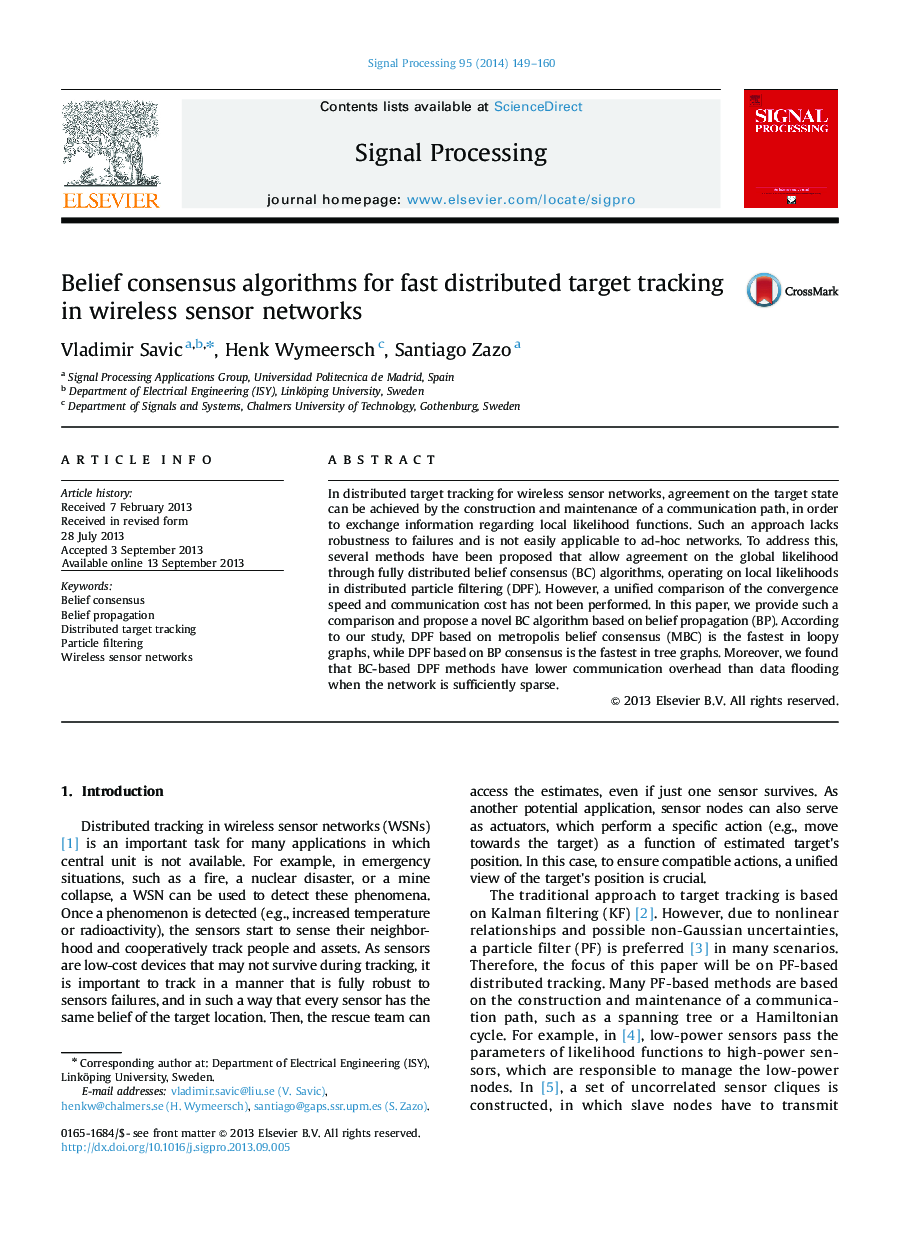| Article ID | Journal | Published Year | Pages | File Type |
|---|---|---|---|---|
| 566424 | Signal Processing | 2014 | 12 Pages |
•We compared five algorithms for target tracking using distributed particle filtering (DPF) based on belief consensus (BC).•We proposed DPF based on belief propagation (BP) consensus.•According to our results, DPF based on metropolis belief consensus (MBC) is the fastest in loopy graphs, while DPF-BP is fastest in tree graphs.•Moreover, we found that BC-based DPF methods have lower communication overhead than data flooding only in sparse networks.
In distributed target tracking for wireless sensor networks, agreement on the target state can be achieved by the construction and maintenance of a communication path, in order to exchange information regarding local likelihood functions. Such an approach lacks robustness to failures and is not easily applicable to ad-hoc networks. To address this, several methods have been proposed that allow agreement on the global likelihood through fully distributed belief consensus (BC) algorithms, operating on local likelihoods in distributed particle filtering (DPF). However, a unified comparison of the convergence speed and communication cost has not been performed. In this paper, we provide such a comparison and propose a novel BC algorithm based on belief propagation (BP). According to our study, DPF based on metropolis belief consensus (MBC) is the fastest in loopy graphs, while DPF based on BP consensus is the fastest in tree graphs. Moreover, we found that BC-based DPF methods have lower communication overhead than data flooding when the network is sufficiently sparse.
